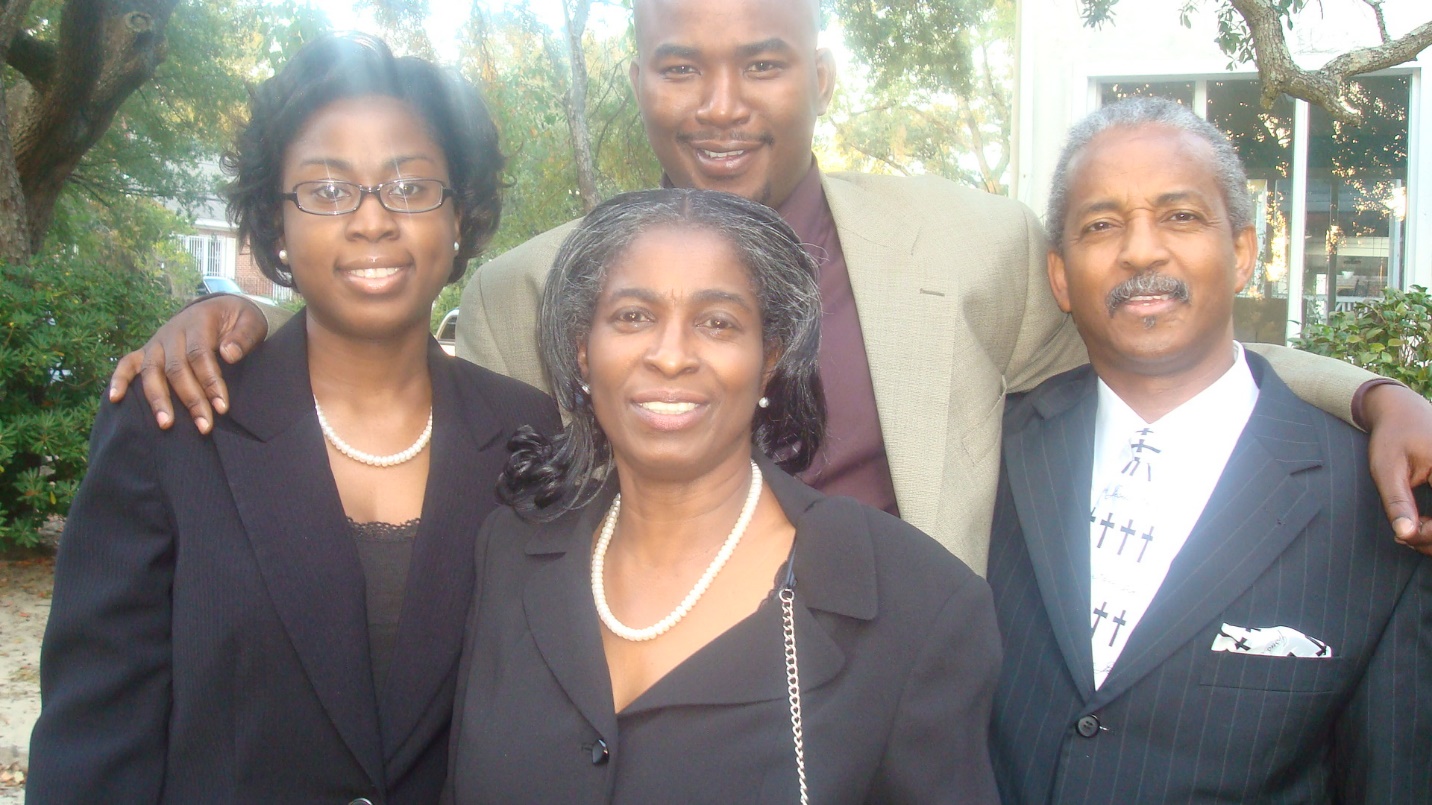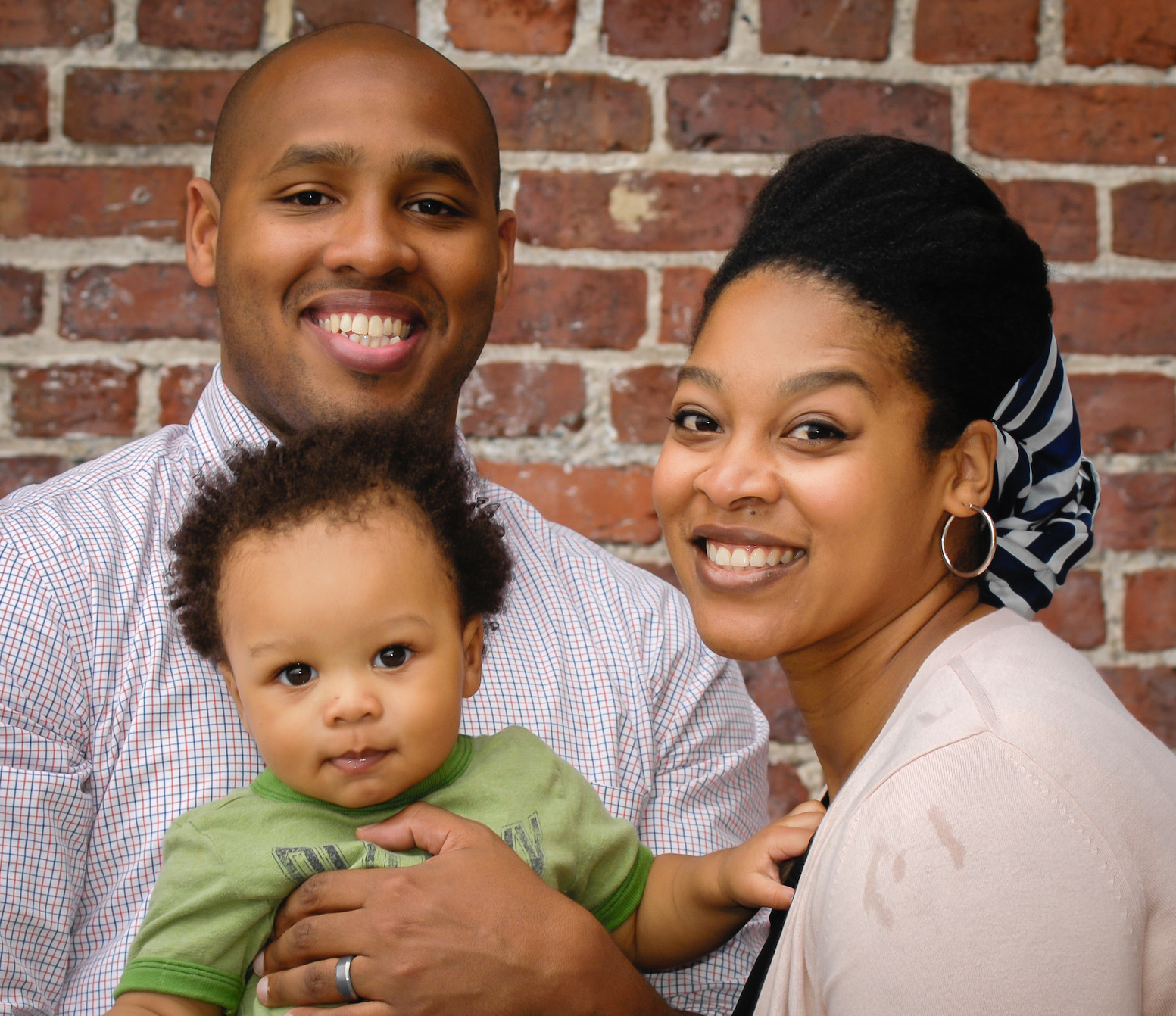
CHARLESTON, S.C. (BP) — Labor pains of change are noted in Charleston, S.C., a former slave-trading port where the government flew the Confederate flag until a white supremacist killed nine black church worshippers a year ago.

Anthony Thompson, whose 59-year-old wife Myra was killed in the shooting just after she finished teaching Bible study, expressed optimism to BP upon the tragedy’s first anniversary.
“People are witnessing and testifying about the fact that they were racist and they’ve repented and confessed,” said Thompson, pastor of Charleston’s Holy Trinity Reformed Episcopal Church. “A lot of that is happening.
“I witnessed those things personally on my own because of the settings I was in, either teaching the class or giving a message and those are the kinds of responses I received,” he said. “It’s very encouraging, it’s very peaceful and it’s very promising that things are going to change in Charleston, in South Carolina and the world.”
 Whether the change will have a lasting impact is the question, Thompson said.
Whether the change will have a lasting impact is the question, Thompson said.
“Hearts have been changed and attitudes have been changed,” Thompson said. “We’re just hoping it’s something that will continue and of course we are trying to reach out right now.
“Our goal right now is to reach out across denominations, reach out across different races, get acquainted with people who we didn’t know,” he noted. “Try to get to understand and know people, not because of the color of their skin, not because of where they work or their status in the world, but who they really are as a person.”
Among concrete changes, the South Carolina Legislature voted to remove the Confederate flag from the state Capitol lawn, a feat only achieved by the vote of at least two-thirds of the governing body. A portion of Calhoun Street — where the church sits — is prominently designated Mother Emanuel Way Historical District. Benches and trees in memory of each of the victims have been planted on the lawn of the Gaillard Municipal Auditorium performance venue. Thompson’s son Kevin Singleton awarded $1,000 scholarships to five disadvantaged 2016 high school graduates through the Passion to Forgive Scholarship Fund he founded in his mother’s memory.
Twelve days of more than 24 community-wide events marked the first anniversary of the slayings, including interdenominational prayer gatherings, ecumenical worship services, a candlelight vigil, music performances, art exhibits, luncheons, dinners, charitable distributions and a panel discussion.
 Philip Pinckney, no relation to Emanuel AME pastor and legislator Clementa Pinckney who was killed in the massacre, is in the thick of Charleston’s race relations as director of the multiethnic, interdenominational 1Charleston group of pastors who have worked together for racial unity since 2013. Pinckney, an African American bivocational church planter, serves as an intern on the three-member, racially diverse pastoral team of Sovereign Grace Church of the Low Country, dually a member of the Sovereign Grace international group of 70 churches and a Southern Baptist congregation.
Philip Pinckney, no relation to Emanuel AME pastor and legislator Clementa Pinckney who was killed in the massacre, is in the thick of Charleston’s race relations as director of the multiethnic, interdenominational 1Charleston group of pastors who have worked together for racial unity since 2013. Pinckney, an African American bivocational church planter, serves as an intern on the three-member, racially diverse pastoral team of Sovereign Grace Church of the Low Country, dually a member of the Sovereign Grace international group of 70 churches and a Southern Baptist congregation.
Pinckney is cautious in citing change.
“I don’t know if change is the most apt word. I think it [the massacre] may have shifted the conversation a little bit,” Pinckney told BP. “If you imagine Charleston as a room full of tables, everyone sitting at their own respective tables — the rich with the rich, the poor with the poor, the black with the black, the white with the white — I think the murders at Emanuel AME helped everybody … turn in their seats a little bit to see something that was happening outside of their world.”
Racial tension was already high in Charleston before Dylann Storm Roof was welcomed as an Emanuel AME visitor on the evening of June 17, 2015, and began shooting members during the closing prayer. Two months earlier, white North Charleston police officer Michael Slager had been charged with murder when video showed him shooting an unarmed black man in the back after a traffic stop.
“Most of the white, majority culture was shocked that this could happen,” Pinckney said of the Emanuel killings. “But most of the minorities were shocked that white people were shocked that this could happen.”
Craig Tuck is one of five founding pastors of 1Charleston and a church mobilization leader in partnership with the South Carolina Baptist Convention. He intentionally located his mostly white pastorate, Centerpoint Church plant, in Charleston’s mostly black Burke High School and operates mission outreaches to the school and surrounding black community.
“Our conviction to build cross-cultural relationships comes from the multiethnic Gospel that moves us to a place of building relationships rather than trying to bring the Gospel to multiethnicity,” he said. “Little did we know that the tragic events that took place at Emanuel AME Church one year ago would open doors to building stronger relationships.”
Forgiveness expressed by the victims’ families and survivors spread grace, Tuck said, and fostered healing instead of hatred. “Their soft answer turned away wrath,” he said, referencing Proverbs 15:1.
First Baptist Church of Charleston pastor Marshall Blalock, a Southern Baptist who has long fostered bridges across racial divides, voices potential for lasting change born of understanding and grace. Whites have begun to understand the true sting of racism that blacks have long known, Blalock said, and forgiveness has imprinted the city with grace.
“I think the average person in our city genuinely wants to build these bridges now. And I couldn’t say that to be true a year ago. It’s hard to measure that, and it’s purely anecdotal on my part to say that,” Blalock told BP, “but … Emanuel nine changed everybody deep in the core of our hearts to say we don’t want that ever to happen again. We don’t even want to subtlety permit that anymore.”
Grace
At the shooter’s bond hearing days after the massacre, Thompson had intended to hold his peace.
“But when I got there the Lord clearly said to me, ‘I have something to say. He told me exactly what to say. And I told him, ‘I forgive you, my family forgives you. You need to repent,” Thompson recalled his words to Roof, who claims innocence. “You need to confess, because right now you’re in a lot of trouble. You need to give your life to the One [to whom] your life means the most, that’s Christ. If you do that, no matter what you’re going through, no matter what happens, everything else will be okay.”
Roof faces the death penalty in a federal trial on 33 counts of charges including hate crimes, set for November, and also faces a state trial in January 2017 on nine counts of murder. Just 21 at the time of the crimes, he identified as a white supremacist and had posted a racist manifesto online.
Many of the mourning survivors joined Thompson in expressing forgiveness, unleashing the power of grace.
“There’s no way to overestimate the power of God’s grace,” Blalock said. “The power of the Gospel was proclaimed across the city in a way that made people, whether they were Christian or not, [understand] something had happened that day that was not from this earth. It was from the power of God Himself. And so the theme of grace became the whole city’s theme.”
Healing
Thompson began a slow process of healing the moment he spoke to Roof at the bond hearing, he said.
“I began to experience peace immediately and from that day forward I was able to move forward. I was able to help my family move forward, because I discovered that it was for me,” Thompson said. “And then God took it to another level; it was for the community. It was for the church. It was for the world. That’s what I saw in Him working, and then a lot of good came out of a bad situation, which helps me and my family to continue to move forward.”
Healing has also been slow and painful for Emanuel AME Church, said Thompson, who taught two Wednesday night Bible classes there June 15 and 22 in memory of his late wife, focusing on the parable of the soils in Mark 4, just as his wife did her last night on earth.
“The church has not as a whole been able to really mourn or grieve the loss of those people who they fellowshipped with. It’s a very closely knitted church,” Thompson said. “The incident was such a horrific one. The church is trying to go through a transition period from mourning to healing which is very difficult right now.”
Since the murder of its pastor, Emanuel AME has gone through three leadership changes already. Norvel Goff served as pastor seven months, followed in late January by Betty Deas Clark, who was reassigned this month, Willi Glee, chairman pro tem of the church’s board of trustees, told BP today (June 30). The newest pastor is Eric S.C. Manning, who was transferred from Bethel AME in Georgetown, S.C., where Clark now serves, Glee said.
While the church does the best it can to heal, it occasionally receives hate mail from those disgruntled that the Confederate flag is no longer flown at the Capitol, Glee said.
An official marker commemorating the Emanuel nine is being planned, although details have not been determined.
No matter the struggles that remain, Thompson upholds the power of God’s grace.
“Maybe it will trickle downhill, maybe it will spread from state to state and eventually the nation,” Thompson said. “I know it will because I’ve seen where God is involved and wherever He’s involved it’s going to happen.”














